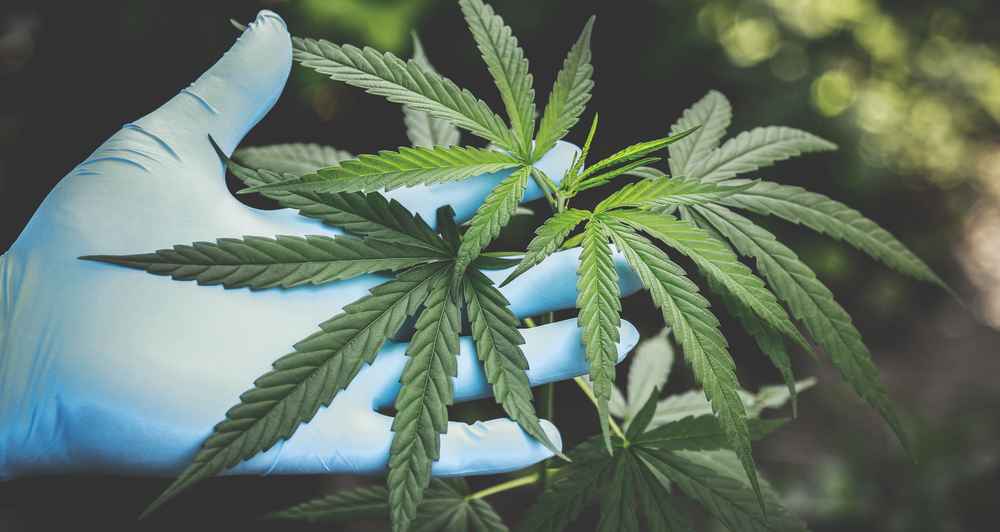
COVID-19 Blocked by Cannabis Compounds? Study Shows Promise
Share
COVID-19 Blocked by Cannabis Compounds? Study Shows Promise
A study by Oregon State showed that CBD and CBG could block COVID-19 from infecting human cells. We take a look at this study on cannabigerolic acid and cannabidiolic acid below.

Cannabinoid Acid Showing Promise, Study Shows
Researchers from Oregon State University led a new study and found potential in two cannabinoid compounds isolated from hemp. According to the study, the acids from these compounds have some potential to block COVID-19 from entering cells.
Additionally, researchers stated that these compounds show the “potential to prevent as well as treat infection” of COVID-19 as a complement to vaccines.
Published in the Journal of Natural Products, the study showed that CBGA (cannibigerolic acid) and CBDA (cannabidiolic acid) bind to the spike proteins on the surface of the virus. These spikes are how the virus gains access to cells, which is why the vaccines and other antiviral treatments target them.
“These cannabinoid acids are abundant in hemp and many hemp extracts,” said Richard van Breemen, lead researcher of the Global Hemp Innovation Center at Oregon State University’s College of Pharmacy. "They are not controlled substances like THC, the psychoactive ingredient in marijuana, and have a good safety profile in humans."
CBDA & CBGA: Popular Supplements Offering Protection?
CBDA and CBGA are the chemical precursors of CBD (cannabidiol) and CBG (cannabigerol) respectively. Both of these compounds are popular supplements on their own, in food and beverages, and even in cosmetics.
However, the study showed that the cannabinoids themselves are less effective than these acids. In the study, researchers tested how effective these acids are in a lab with live strains of coronavirus. These tests included both the alpha and beta variants of the virus.
Through their tests, they found that the compounds successfully prevent the infection of epithelial cells. These are the cells that line the heart, blood vessels, lungs, kidneys, and intestines.
According to van Breemen, these cell entry inhibitors have the potential to shorten infections and even prevent infections. How do they help, though?
Variants, Mutations, and How We Protect Ourselves
Over the course of the pandemic, COVID variants have seen rapid mutations in the spike proteins they use to infect cells. As they mutate, they begin to evade antibodies, which reduces the effectiveness of vaccines, which focus on older strains.
For example, the Omicron variant has dozens of spike protein mutations. These allow it to evade immunity from past infection and become more resistant to vaccines. Additionally, it reduced the potency of the two main monoclonal antiviral treatments.
However, vaccination alongside drugs derived from CBGA and CBDA has the potential to make an escape from immunity more challenging for current and future variants.
According to Van Breemen, "Our data show CBDA and CBGA are effective against the two variants we looked at, and we hope that trend will extend to other existing and future variants.”
The Caveats: The A in CBDA and CBGA
While the researchers studied the effects of CBDA and CBGA, they did not study the psychoactive ingredient of marijuana. This is because the rules of the campus prevent the study of controlled substances.
However, with the abundance of other cannabinoids in hemp, they were able to pursue this thread of research. Additionally, van Breeman stated that recreational use might not have the same effect in preventing the infection.
For instance, in his interview with Vice News, he stated that heating the compounds changes their chemical profiles and properties. He went on to explain that the active compounds discovered in hemp are CBDA, CBGA, and THCA.
The A in these compounds represents an acid group - a carboxylic acid. Upon treatment, the heat converts these compounds. CBDA becomes CBD, and CBGA becomes CBG. This means that the compounds without the acid are not as active in the fight against the virus.
Still, there’s a silver lining as we look ahead. In the published study, the researchers stated the following.
"Orally bioavailable and with a long history of safe human use, these cannabinoids, isolated or in hemp extracts, have the potential to prevent as well as treat infection by SARS-CoV-2."
While smoking and vaping might not help, there’s still a lot of hope for the future of cannabinoids in medicine.
